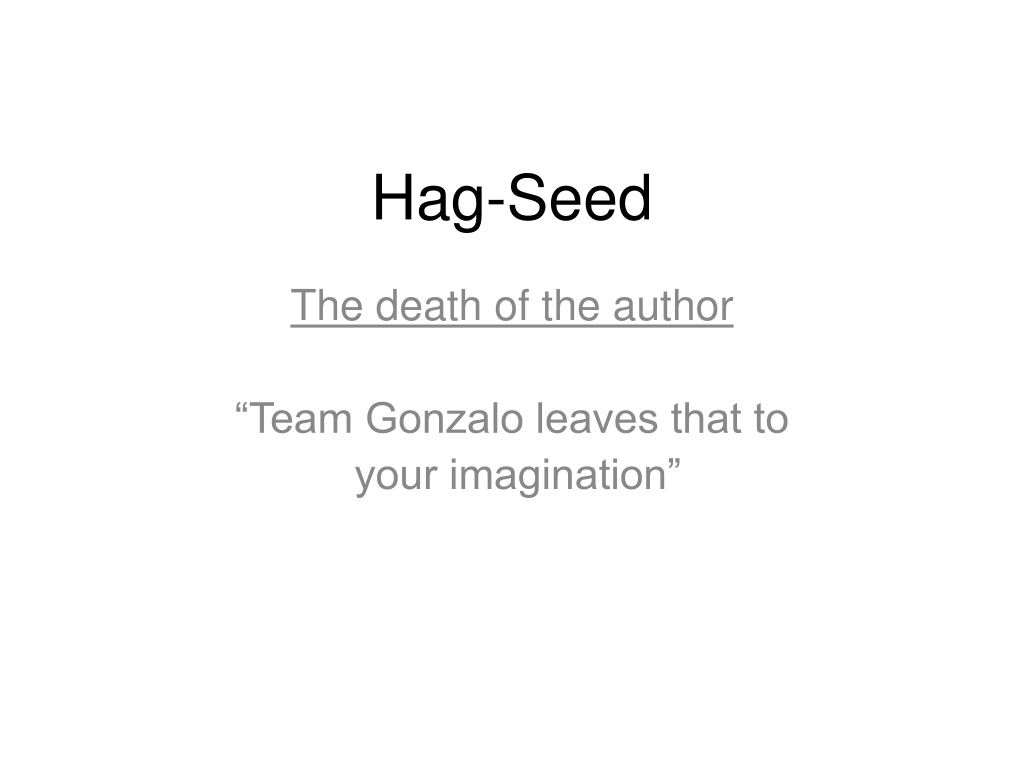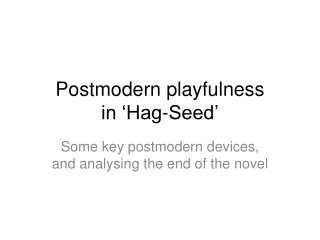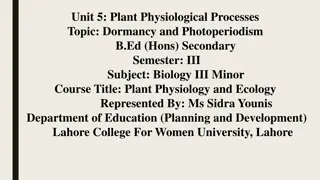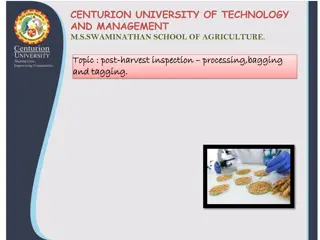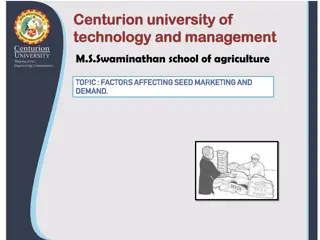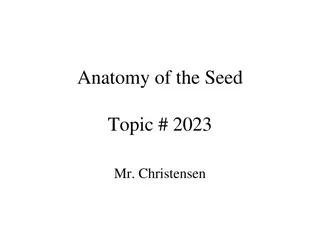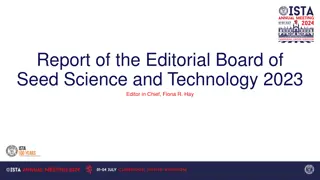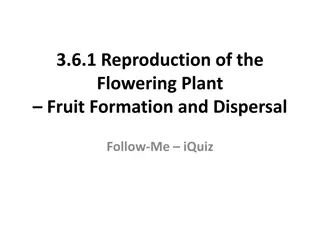Exploration of Literary Theory: Death of the Author in "Hag-Seed" and "Team Gonzalo
Explore the concept of the death of the author in literature through the works "Hag-Seed" and "Team Gonzalo." Delve into Roland Barthes' theory, which separates the author from the text, emphasizing the role of the reader in interpreting meaning within the narrative. Witness how this theory is demonstrated in the playful dialogue of characters in Atwood's work.
Download Presentation

Please find below an Image/Link to download the presentation.
The content on the website is provided AS IS for your information and personal use only. It may not be sold, licensed, or shared on other websites without obtaining consent from the author. Download presentation by click this link. If you encounter any issues during the download, it is possible that the publisher has removed the file from their server.
E N D
Presentation Transcript
Hag-Seed The death of the author Team Gonzalo leaves that to your imagination
The death of the author In 1967, literary critic Roland Barthes wrote an essay announcing the death of the author in literature. Barthes argued that the author s personal context and creative intentions are distinct from her or his literary work that writing and creator are unrelated. Popular among postmodern thinkers Also associated with modernist thinking Related to how we, as readers, interpret meaning
Barthes describes literature as a space "where all identity is lost, beginning with the very identity of the body that writes". The death of the author marks the birth of literature, defined, precisely, as "the invention of this voice, to which we cannot assign a specific origin . Indeed, the "modern writer" or "scriptor" as Barthes calls him can only mimic "a gesture forever anterior, never original" by recombining what has already been written. Whereas the "Author- God" maintained with his work "the same relation of antecedence a father maintains with his child," the scriptor "is born simultaneously with his text": for him, "there is no other time than that of the utterance, and every text is eternally written here and now". As Barthes puts it, apropos of Mallarm , "it is language which speaks, not the author" or the scriptor for that matter. Works of fiction are palimpsests and as such are devoid of any "single 'theological' meaning (the 'message' of the Author-God)". The key to a text is not to be found in its "origin" but in its "destination": "the birth of the reader must be at the cost of the death of the Author". - Source, Death of the Author: https://www.theguardian.com/books/booksblog/2010/jan/13/death-of-the-author
Team Gonzalo In Ch. 44 of the play, a small team of inmates present to the rest of the cast and crew about how they think Gonzalo s life plays out after the final events of the play This in itself is typical of Atwood s playful approach to conversing with Shakespeare s The Tempest in the novel
Team Gonzalo continued He chooses to go back to the island with a small group of other people as good as himself there he sets up a kingdom where there will be no wars, no crimes, and no prisons Felix: And how does it go? Bent Pencil: Team Gonzalo leaves that to your imagination
The key to a text is not to be found in its "origin" but in its "destination": "the birth of the reader must be at the cost of the death of the Author". - Barthes
Consider how does the imagining of Gonzalo the character s possible future, beyond the plot of the play, enact the birth of the reader ? Shakespeare as author, Atwood as author and reader, we the reader who lives and who dies in this textual conversation? how does this chapter reinforce and explore the theme of the humanising power of the imagination ? what does this chapter reflect about Atwood s overall style, and the textual conversation in which she engages?
